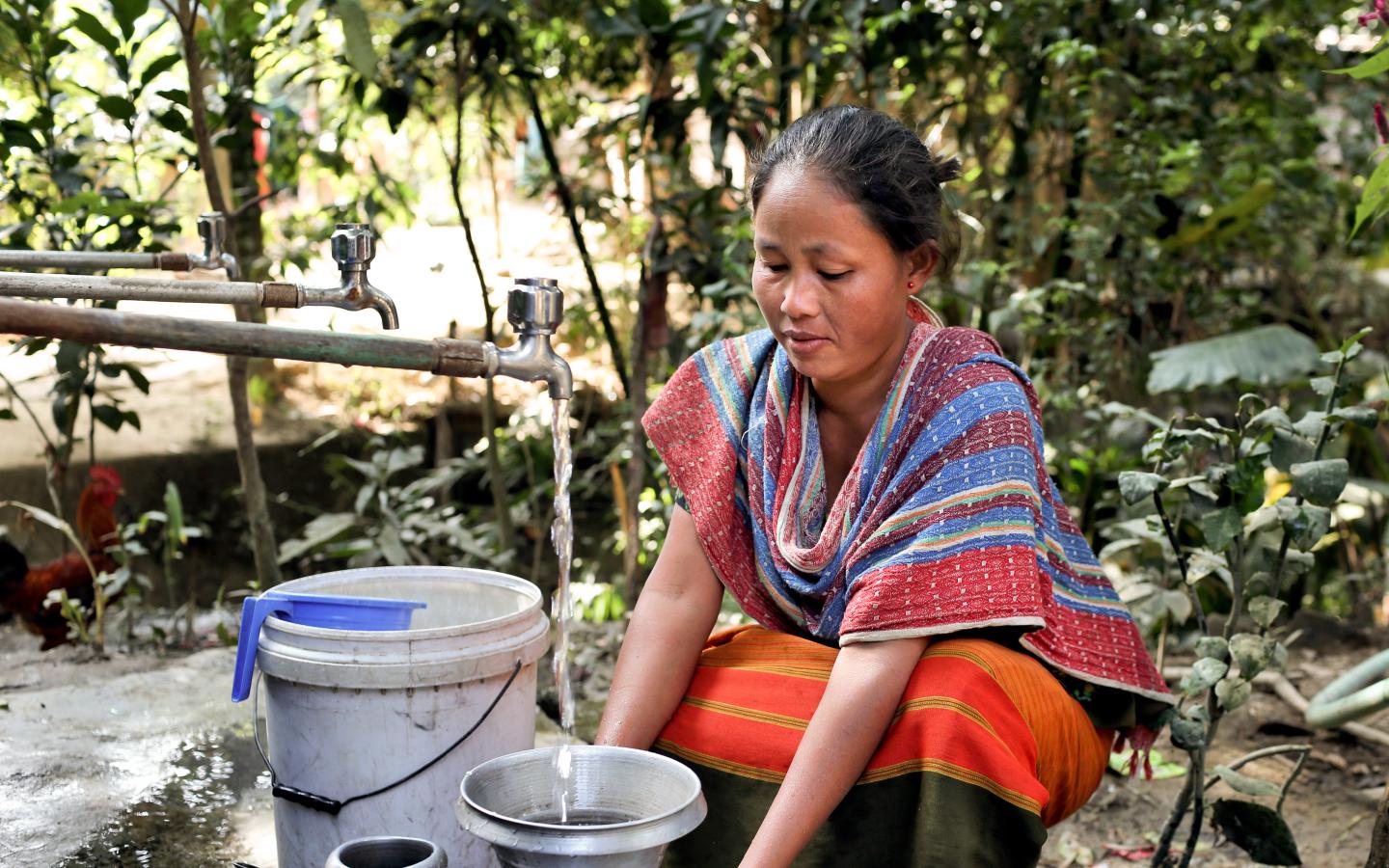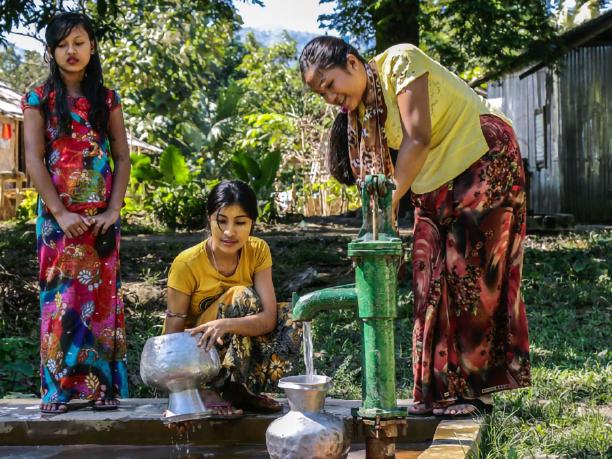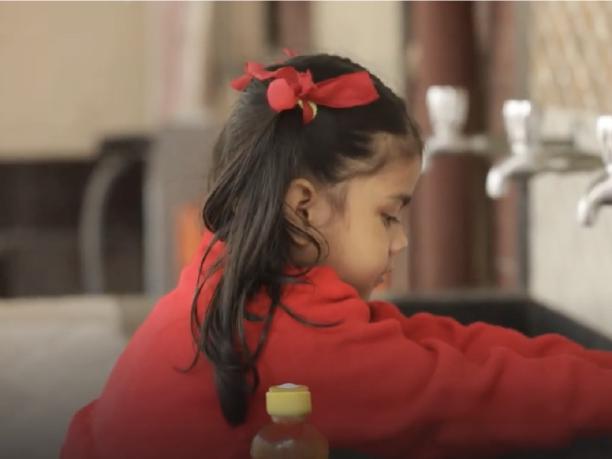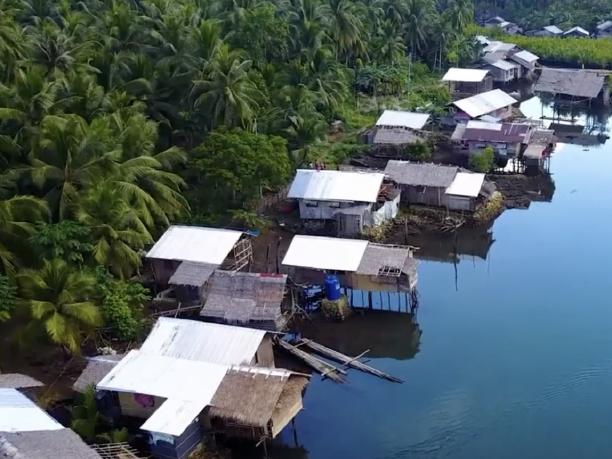Water Financing Partnership Facility
Year Established
2006
Partners
Australia, Austria, Bill & Melinda Gates Foundation, Netherlands, Norway, Spain, Switzerland
Cumulative Contributions Committed
$148 million
The Water Financing Partnership Facility (WFPF) was established in December 2006 to mobilize additional financial and knowledge resources from development partners to support the implementation of ADB’s water financing program. Its initial focus was to support the achievement of targeted outcomes set for 2006–2010 and was subsequently adjusted and extended to 2020 following approval of ADB’s Water Operational Plan 2011–2020. Building on this experience, the WFPF continues to support ADB’s water operations from 2021 onward, guided by the Water Sector Directional Guide: A Water-Secure and Resilient Asia and the Pacific. It aims to aid in four areas of operational focus: (i) water as a sustainable resource, (ii) universal and safe water services, (iii) productive use of water in agriculture and energy, and (iv) reduced climate change and water-related disaster risks.
The implementation of the Water Sector Directional Guide adheres to five guiding principles for improving development outcomes: (i) building resilience and adaptive capacity, (ii) promoting inclusiveness and gender equality, (iii) embracing environmental sustainability and the circular economy, (iv) improving governance and catalyzing finance, and (v) fostering innovation and technological advancement.
The WFPF has helped deliver a total of $10.4 billion in committed water investments from 2006 to 2023, which stand to benefit nearly 127 million people.
The new multi-partner Water Resilience Trust Fund, established in January 2023, received its first $20 million in committed contribution from the Government of the Netherlands in May 2023. These resources will enable ADB to significantly scale up support for building water resilience in its developing member countries.
Key focus areas for WFPF support in 2023 included support for nature-based solutions for flood management, promoting water–food–energy nexus approaches through sub-basin modelling of optimal water resource allocations, promoting private sector participation, and strengthening the climate focus in the design of ADB-financed water investment projects.
The first in-person Annual Consultation Meeting since 2019 was held in New Delhi in November 2023. This provided an opportunity for ADB and WFPF partners to take stock of achievements and discuss priority actions for increasing WFPF’s development impact.
Trust Funds
Water Innovation Trust Fund
| Year Established | 2006 |
|---|---|
| Partner | Australia*, Austria, Norway**, Spain, Switzerland*** |
| Cumulative Contributions Committed | $52.4 million |
| Project Commitments | |
| Grants | $4.3 million for 7 projects |
| Technical Assistance | $44.3 million 98 TA projects |
| Direct Charges | $9.5 million for 111 activities |
In September 2023, the Multidonor Trust Fund under the Water Financing Partnership Facility was renamed Water Innovation Trust Fund to highlight WFPF’s focus on innovations for improved water resources management and water services delivery. Following the change in trust fund name, the Government of Spain signed an Instrument of Contribution in December 2023 for an additional €4 million ($4.4 million).
*Exited the fund in 2021
**Exited the fund in 2017
***Exited the fund in 2020
Netherlands Trust Fund
| Year Established | 2006 |
|---|---|
| Partner | Netherlands |
| Cumulative Contributions Committed | $44.2 million |
| Project Commitments | |
| Grants | $3.6 million for 3 projects |
| Technical Assistance | $35.7 million for 30 TA projects |
| Direct Charges | $6.6 million for 47 activities |
The Netherlands Trust Fund under the Water Financing Partnership Facility (WFPF-NET) was established in December 2006 to support the implementation of ADB’s water financing program. Its initial focus was to support achievement of targeted outcomes set for 2006–2010 and was subsequently adjusted and extended to 2020 following the approval of ADB’s Water Operational Plan 2011–2020. The fund continues to support ADB’s water operations from 2021 onwards, guided by the Strategy 2030 Water Sector Directional Guide: A Water-Secure and Resilient Asia and the Pacific.
The fund prioritizes activities designed to result in significantly more people with access to safe drinking water supply and improved sanitation, higher productivity and efficiency of irrigation and drainage services, more people with reduced risk of flooding and other water-related disaster risks; sustainable management of water resources; increased knowledge and capacity; improved sector governance, and increased food security.
The trust fund will be officially closed on 30 June 2024.
Sanitation Financing Partnership Trust Fund
| Year Established | 2013 |
|---|---|
| Partner | Bill & Melinda Gates Foundation |
| Cumulative Contributions Committed | $27 million |
| Project Commitments | |
| Grants | $6.4 million for 4 projects |
| Technical Assistance | $10.2 million for 12 TA projects |
| Direct Charges | $1.7 million for 11 activities |
On 25 July 2013, the Bill & Melinda Gates Foundation signed a channel financing agreement with ADB to establish the Sanitation Financing Partnership Trust Fund under the Water Financing Partnership Facility.
The fund initially focused on innovative sanitation solutions to increase support for fecal sludge management through non-networked (non-sewered) sanitation and septage management. Since 2019, the focus has shifted to a more holistic approach through the citywide inclusive sanitation framework to increase access to appropriate sanitation systems, whether sewered or non-sewered, centralized or decentralized, including the required support to increase knowledge and capacity and improve governance.
In 2023, an additional $8 million contribution was received to support projects that address climate resilience in sanitation infrastructure and create more demand for transformative technologies.
Water Resilience Trust Fund
| Year Established | 2023 |
|---|---|
| Partner | Netherlands |
| Cumulative Contributions Committed | $20 million |
| Project Commitments | |
| Technical Assistance | $2.8 million for 3 TA projects |
The Water Resilience Trust Fund was established in January 2023 under ADB’s Water Financing Partnership Facility (WFPF). Established as a separate multi-partner trust fund, it aims to support critical and transformational actions by government agencies, communities, and the private sector that are needed to strengthen water resilience in Asia and the Pacific. The fund’s objectives are aligned with the vision of ADB’s Strategy 2030 and Strategy 2030 Water Sector Directional Guide: A Water-Secure and Resilient Asia and the Pacific.
The fund prioritizes activities that focus on achieving local water and sanitation resilience, aligned with countries’ needs, national development priorities in the water sector, and sector plans for addressing climate change. Activities should (i) support capacity development in ADB’s developing member countries, (ii) help build knowledge base on water resilience, (iii) help create an enabling environment through improved policies and planning processes, and (iv) facilitate pipeline development for sovereign and nonsovereign water resilience projects.
News
16 Nov 2023
ADB Receives $8 Million Trust Fund Replenishment to Meet Sanitation Challenge in Asia and the Pacific
ADB’s Sanitation Financing Partnership Trust Fund received an $8 million replenishment from the Bill & Melinda Gates Foundation, further scaling up the partnership between the two institutions to improve access to safe sanitation in Asia and the Pacific.




